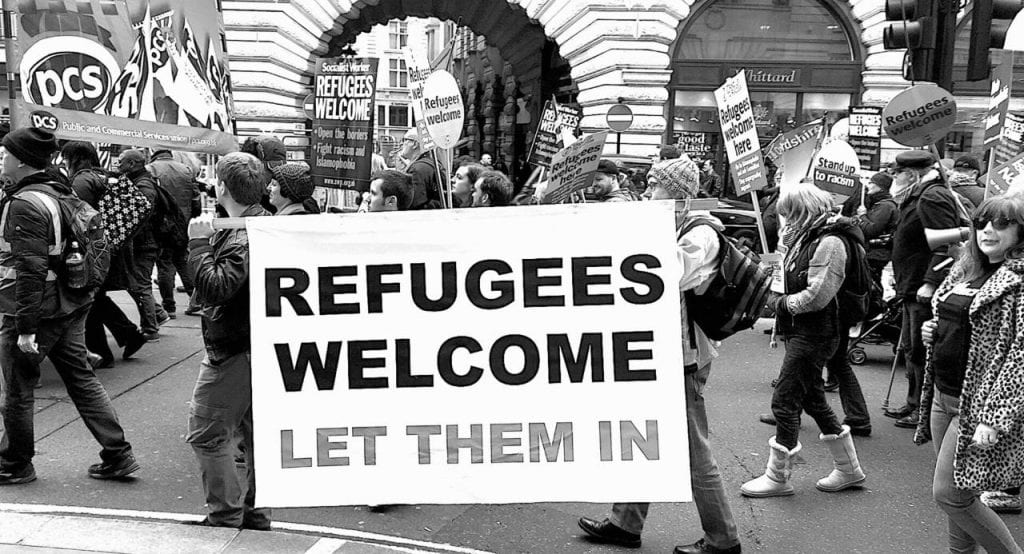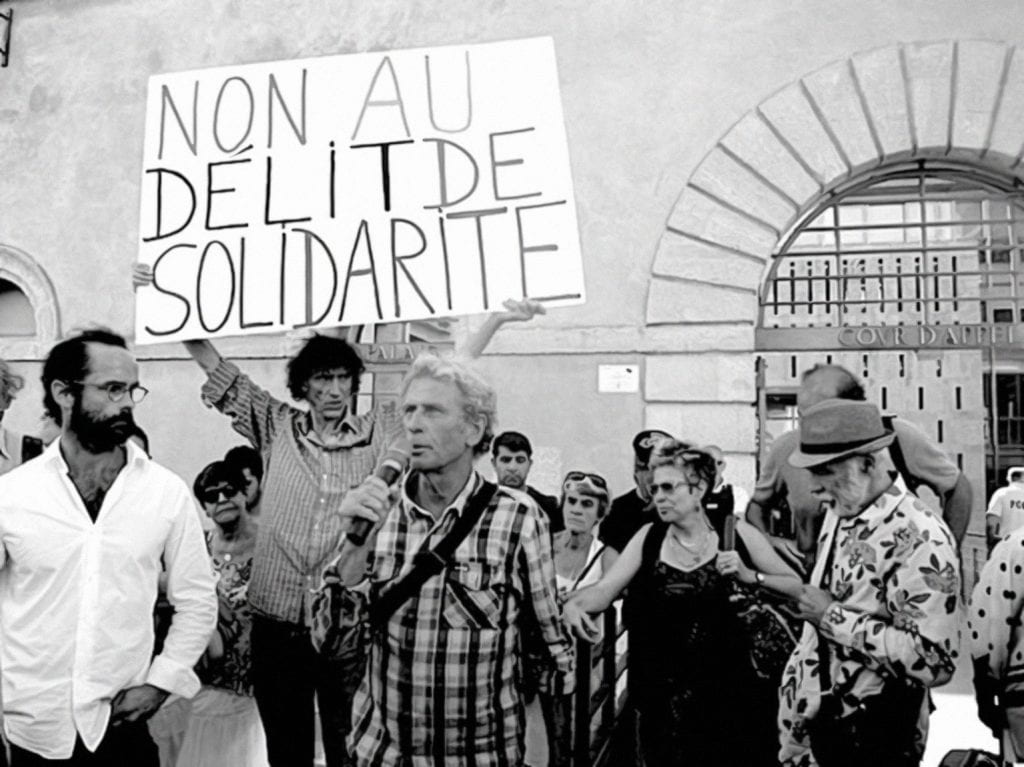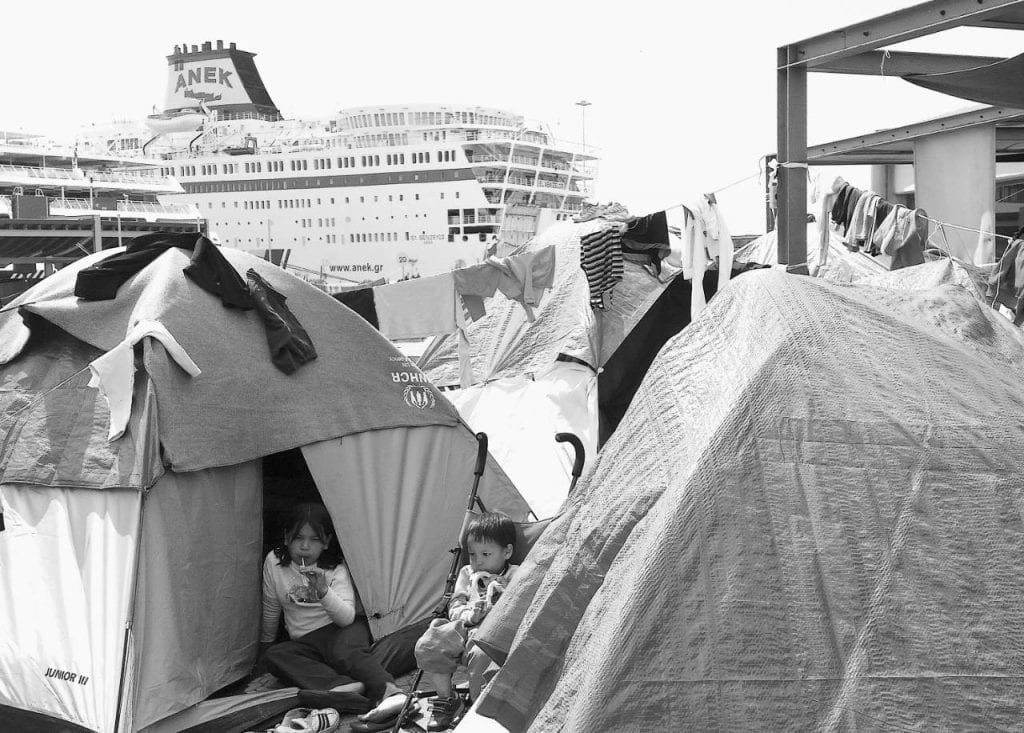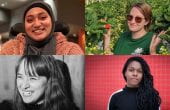Last week I was delighted to welcome guests to the first meeting of Localities of Welcoming, a new project connecting people across Europe who are involved in refugee welcoming and support. Below is a guest post about the project by its organisers – my Goldsmiths colleague Professor Sue Clayton, and Professor Anna-Louise Milne from the University of London Institute in Paris (ULIP).
Both of us work as researchers and creative practitioners in solidarity with refugees and people seeking a life in safety. Both of us also remain active as volunteers in communities that, long after sensationalist media headlines about the 2015-16 “refugee crisis,” continue to struggle and need our support and awareness.
We knew that across Europe there are particular localities – border points like Ventimiglia, where people can no longer cross without facing arrest; camps like Grande-Synthe near Dunkirk that were meant to be temporary but have become limbo-like permanent slum settlements; and city districts like Paris La Chapelle and Athens Exarcheia seeing new communities springing up – where refugees, local residents and international volunteers are together doing their best to create a ‘new normal’ for people who have come from disaster and war, and who in many cases still after 4-5 years have no official decision on their future status.
What do these localities with their diverse populations share and what distinguishes them across Europe?

We – Anna-Louise and Sue – formed a network to exchange knowledge and information, support each other’s work, and together research situations that needed deeper understanding. It is called Localities of Welcoming in Hostile Times. ULIP’s developing relationship with Goldsmiths has supported this, as both Universities do work within their own local refugee communities, and do key research in this field.
The Covid-19 pandemic meant we could not go to see first-hand what everyone was doing locally, only meet online – but the virus and its dire effect on refugees’ living conditions and human rights made it all the more important to start exchanging information, and we made Covid-19 our first topic.
At the first meeting this month, were delighted to have attendees from all over Europe – from Malta, Athens, Belgrade, Sarajevo, Brussels, Rome, Paris, Calais, Dunkirk, Venice, Palermo, Bayonne and London. Among the topics people were keen to share were:
- The illegal “pushback” of those arriving by boat to Malta, who have recently been forcibly returned back to Libya, a country known for its horrific abuse and enslaving of refugees.
- Police violence in Malta, Croatia, Calais, the Greek islands and Serbia; and some cases where refugees are now incarcerated indefinitely with Covid-19 as the excuse.
- The fact that independent rescue ships are frequently banned from operating in the Mediterranean, instead being detained in port by European states without lawful reason.
- The issue of diminishing food and other supplies, and less international volunteers able to reach key zones because of Covid-19 restrictions; and infrastructures – local services like tap-water at Calais – suspended.
- Not enough information on Covid-19 getting to refugee communities.

It was instantly clear what a powerful need there is to share this information and support each other. And though the outlook for refugee settlement is grim for all the reasons above, we took huge hope and inspiration from what amazing work volunteers continue to do – and many former refugees are now volunteers themselves, organising and leading their communities toward more self-determination.
Hearing about new schools; support for families; model settlements like Pipka self-governed camp in Lesvos; the schemes for people to welcome refugees into their own homes as guests in Paris and Brussels; successful deals with local governments to accommodate refugees from Syria; Lewisham district’s commitment to become a Borough of Sanctuary and many more stories, gave us all constructive ideas to move forward.
Perhaps more than anything, we were also energised by accounts of support for the Black Lives Matter movement. Despite concerns about the virus, demonstrations had taken place in almost all the localities that joined the network, and both in social spaces and online.

With so much hostility toward outsiders in Europe, with our new arrivals being discriminated against in their asylum applications on grounds of their ethnicity and nationality rather than based on each case’s merits, and with volunteers themselves increasingly criminalised for acts as simple as offering food or shelter, there was never a more important time for intersectional support across anti-racist and pro-refugee humanitarian initiatives.
So “the refugee crisis”, which presented in 2015-16 as a humanitarian emergency, has become embedded into our culture, and is no longer an “other” issue. How we respond to challenges around integrating refugee populations, as how we respond to the Black Lives Matter movement, are important barometers of how we can build better and more equal futures together.
This was a guest post by Professor Sue Clayton and Professor Anna-Louise Milne.




